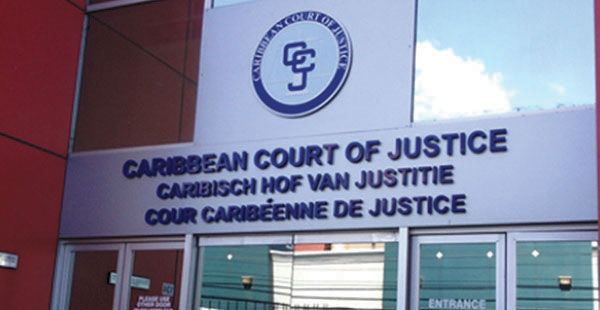By Oscar Ramjeet
It seems to me that no other country will join the appellate jurisdiction of the Caribbean Court of Justice (CCJ) before the retirement of the second president, Sir Denis Byron, in July next year. The first president, Michael de la Bastide, and three other judges have retired since the court was established in 2005, and we were only fortunate to see four countries on board.
I am very disappointed at the attitude of the governments of Jamaica, Trinidad and Tobago, and a few of the eastern Caribbean states who are still to join. Only Belize and Dominica took steps to join Guyana and Barbados by abolishing appeals to the Privy Council, thus making the CCJ the final court.
St. Vincent and the Grenadines and Grenada failed to get the mandate from their electorates because the referenda to pave the way failed, but I am of the view that the referenda were not successful because they were loaded with other aspects like removing the Queen as head and giving more powers to the politicians.
The Jamaicans are reluctant claiming that the CCJ was in favour of the death penalty; Trinidad and Tobago has numerous excuses and is flip-flopping. Antigua and Barbuda is awaiting the outcome of a referendum, which has been postponed in order to sensitise the electorate about the move. This seems like a lame excuse.
Meanwhile, the CCJ has made tremendous strides in it 12 years of existence. It has top class videoconference equipment, which can be used by attorneys in various jurisdictions. There is no need for lawyers to travel to Port of Spain to argue their cases; they can do so from Georgetown, Belize City, Bridgetown, or Roseau. The Court has dealt with several controversial cases and made a landmark decision in the Shanique Myrie case when it awarded substantial damages against the Barbados government for denying a Jamaican woman entry in Bridgetown. The judges found that the immigration officers breached the Treaty of Chaguaramas by denying a CARICOM citizen entry.
I should emphasize that the CCJ is not fearful to rule against governments and has done so in numerous occasions against Belize and also the Co-operative Republic. A very important issue will soon come up for hearing. The “term limit case” in which the court will decide whether former President of Guyana Bharat Jagdeo can again serve as president having completed his two consecutive terms as head of state and government. The matter will come up for case management on Feb. 6.
Although only four countries have abolished appeals to the Privy Council, the CCJ hears a large number of cases in its original jurisdiction. In fact, the Myrie case originated from Jamaica, which is not a member of the appellate jurisdiction. I am baffled why so many jurisdictions have not yet severed ties with the Privy Council. Unfortunately, it seems as if the whole process gets so caught up in political manoeuvrings that most countries are still tied to the apron strings of the London-based Privy Council.
The views expressed herein are those of the writer and do not necessarily represent the opinions or editorial position of iWitness News. Opinion pieces can be submitted to [email protected]
The opinions presented in this content belong to the author and may not necessarily reflect the perspectives or editorial stance of iWitness News. Opinion pieces can be submitted to [email protected].







Thank God for these apron strings.
Only if these judges on the CCJ can be impeached for any misdemeanors will I agree. Many crooked lawyers become judges and that’s bad for any system. They must be held accountable for any false or inappropriate decisions the hand down.